Description
ABSTRACT
An Evaluation of Customary Arbitration in Nigeria
Abdul-Ghaniy Oriyomi Anjorin*
Alternative Dispute Resolution (ADR) mechanisms are means through which disputants settle their disputes out of court. One of such tools is Arbitration. Arbitration involves resolving disputes between parties by an independent person referred to as the arbitrator, who hands down a form of judgment known as an award. Of the various types of arbitration, customary arbitration is one. There have been controversies as to the propriety of describing customary arbitration as a distinct form of Arbitration. Some have denied its existence, while others have maintained a position of its subsistence in Nigerian jurisprudence. This paper intends to consider these views. It reviews the scholarly literature of the ‘pro’ and ‘anti’ scholars who have argued the issue. It discusses the provisions of the 1999 Constitution (as amended), the Nigerian Igbo Customary Arbitration system and judicial decisions. It examines the extent to which the parameters of proving the constituents of a valid customary arbitration, as laid down by the Supreme Court of Nigeria has been consistently applied. It also considers the prospects of sustaining customary arbitration in the nearest future in Nigeria and offers recommendations on some of the issues raised in the paper.
Keywords: Customary arbitration, Alternative Dispute Resolution, Igbo customary arbitration, Nigeria, Disputants.
INTRODUCTION
The challenges bedeviling litigation have inevitably led litigants to seek alternatives to litigation.1 Arbitration, in one form or the other, has been with humankind from the beginning of time. One can say it has a ‘primordial origin.’2 A distinguished French writer has described arbitration as an ‘apparently rudimentary method of settling disputes since it consists of submitting to ordinary individuals whose only qualification is that of being chosen by the parties.’3 It refers to the reference of disputes between not less than two parties, for determination after hearing the parties, by a person (s) other than a court of law.4 It is a private means for the resolution of disputes.5
* LL.B (Unilag), BL (First Class Honours), LL.M (Unilorin), ACIS. A Legal Practitioner based in Lagos.
- These challenges include extreme congestion of courts; rigid adherence to technicalities and procedures resulting in delays in the administration of justice; hostility sometimes generated which can harm business relationship; among others. See generally MM Akanbi, Domestic Commercial Arbitration in Nigeria: Problems and Challenges (Lampert Academic Publishing, Germany, 2012).
- E Akpata, The Nigerian Arbitration Law in Focus,(West African Book Publishers 1997), 1
- Alan Redfern and Martin Hunter, Law and Practice of International Commercial Arbitration (2nd edn, Sweet & Maxwell 1991), 22
- MM Akanbi, ‘A Critical Assessment of the History and Law of Domestic Arbitration in Nigeria’ in Oluduro (ed.), Trends in Nigerian Law (Constellation Nigerian Publication, Ibadan 2007), 475 cited in MM Akanbi, ‘Contending Without Being Contentious: Arbitration, Arbitrators and Arbitrability,’ Presentation at the 152nd Inaugural Lecture of the University of Ilorin, Ilorin, Nigeria, Thursday, 13 November 2014.
- LA Ayinla, ‘The Imperative of an Attitudinal Change about the Practice of Law in Nigeria: A Critique of the Interdependence of ADR and the Judiciary’ [2013] Nnamdi Azikiwe University Journal of Public and Private Law 237.

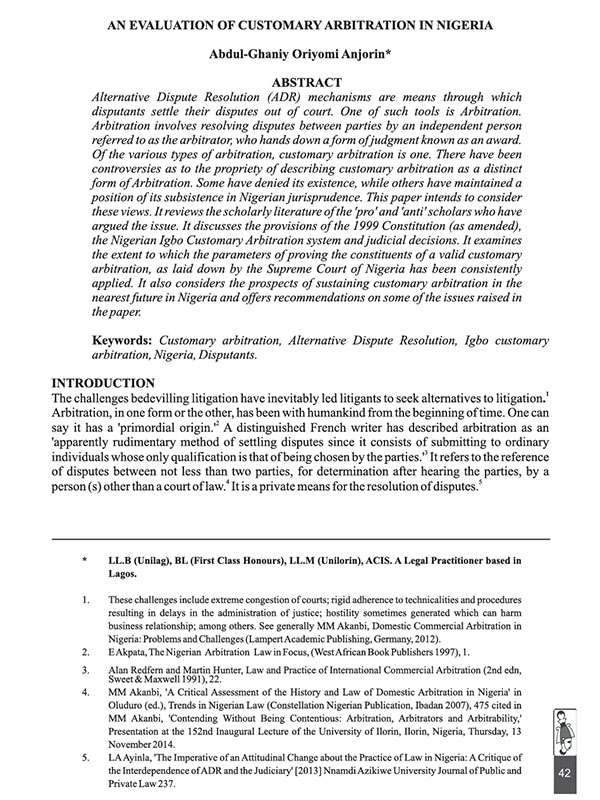
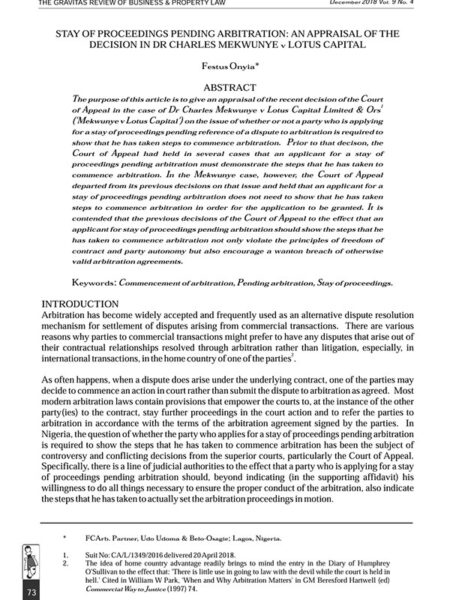
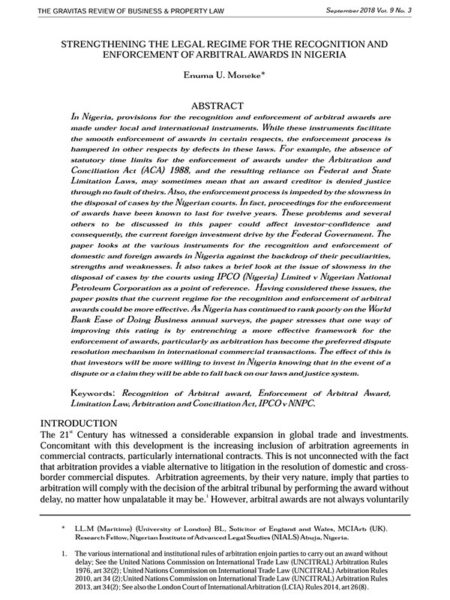
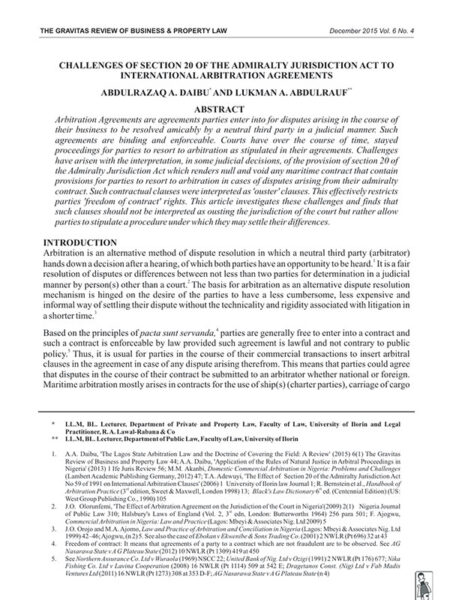
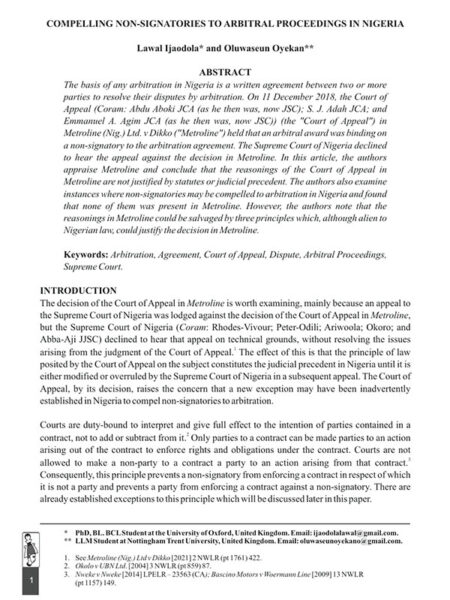


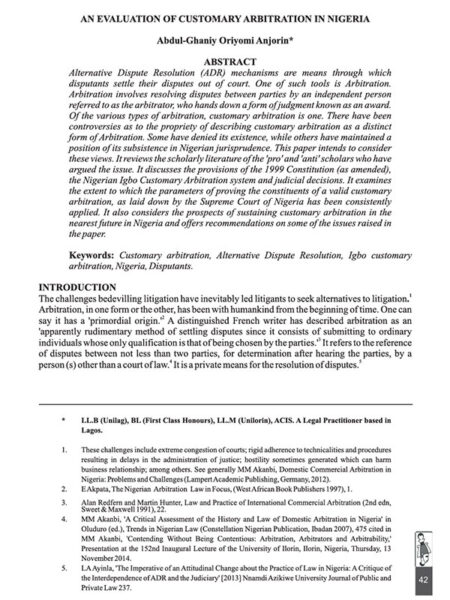
Reviews
There are no reviews yet.